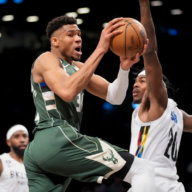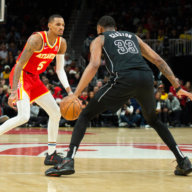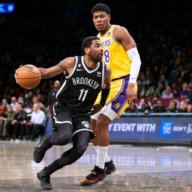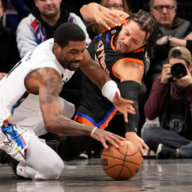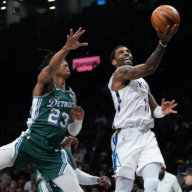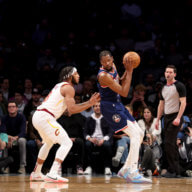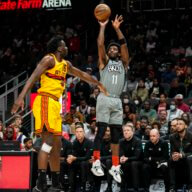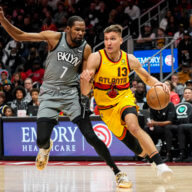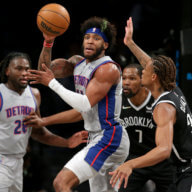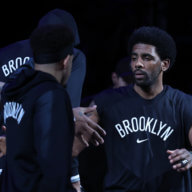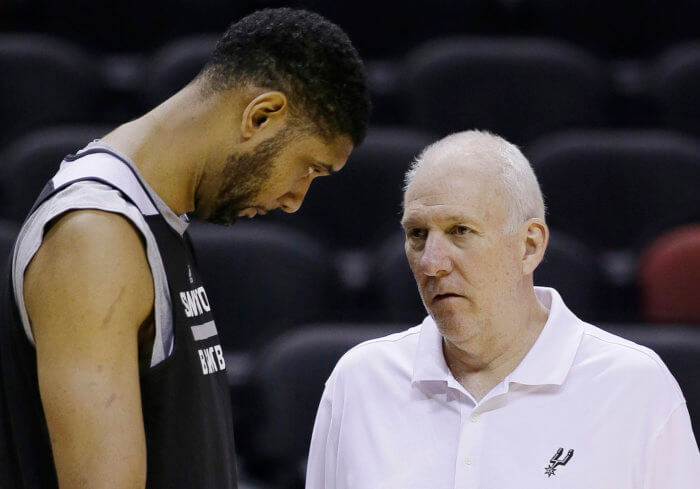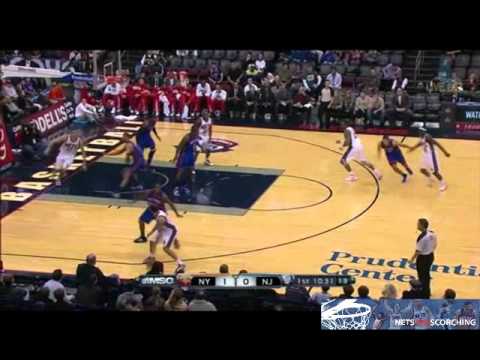There’s no question that Kris Humphries’ individual performance this season has been unexpectedly fantastic. Before the regular season began, I didn’t even see where Hump fit into the rotation with the acquisition of veteran Troy Murphy, the drafting of phenom Derrick Favors, and the ability of other new acquisitions like Travis Outlaw, Johan Petro and Damion James being able to fill in at the four based on match-ups. Now, he’s the de facto starter until Avery Johnson decides to unleash the Favors-era on us all (or drive up his trade value), and Hump has earned the right, putting up a PER (Player Efficiency Rating) of 17.47, a rebound rate of 21.2 and a 54% field goal percentage.
But now that we’re past the quarter-way point of the season, there’s enough data starting to emerge to determine how effective a player actually is for his team – and to my surprise, Humphries’ strong numbers don’t’ necessarily help the Nets win many games – making him entirely expendable if the Nets need to shift his affordable, but expiring contract in a deal before the deadline. In fact, after looking at some of the numbers, I think Johnson needs to get Favors into the starting lineup now, not just because it will help him develop, but the Nets play better as a unit when the rookie is inserted with the other starters.
I’m pulling this data primarily from the floor unit stats at 82games.com. Of the top six rotations listed on the site, Humphries isn’t a part of any unit that has generated a positive result for the Nets. In fact, Avery’s de facto starters of Hump, Devin Harris, Anthony Morrow, Travis Outlaw and Brook Lopez has been statistically horrible, allowing 118 points per 100 possessions while scoring 103 points per 100 possessions, producing a +/- of -64 and a projected winning percentage of 12.5%. The second most frequently-used unit, which essentially subs Jordan Farmar for Harris, and retains the other four, allows 113 points per 100 possessions, only score 98 points per 100 possessions, posts a -17 +/- and a winning percentage of 45.4.
Now, it’s hard to pin this all on Humphries, considering the inconsistencies of Lopez and Harris and the fact that Outlaw is listed in both of these rotations, but let’s see what happens once we take Kris out and put Favors in his place: The team has a better defensive efficiency of 108 points per 100 possessions and is off-the-charts offensively, averaging 136 points per 100 possessions. This leads to a +/- of +15 and a project winning percentage of 72.7.
Just to show deference to Troy Murphy, a rotation including him with the four starters averages 91 points per 100 possessions, allows 103 points per 100 possessions, has a +/- of -13 and a projected winning percentage of 40. However, the Nets do play considerably better with Farmar and Murphy mixed in with Outlaw, Morrow and Lopez, scoring 121 points per 100 possessions, allowing 94 points per 100 possessions, posting a +17 and a winning percentage of 50.
With these numbers in mind, I think it’s time to see what Favors can start doing with more minutes with the starters. Meanwhile, Hump can be relegated back to a role where I think he’s best-suited, an energy guy off the bench who can rebound and score garbage points at the rim. And if the team needs to move Hump, with his own individual numbers over his career norms, there’s no better time than now to do pull the trigger, especially since the Nets currently have fill-ins who won’t end up hurting the team when they’re on the court in his place.


